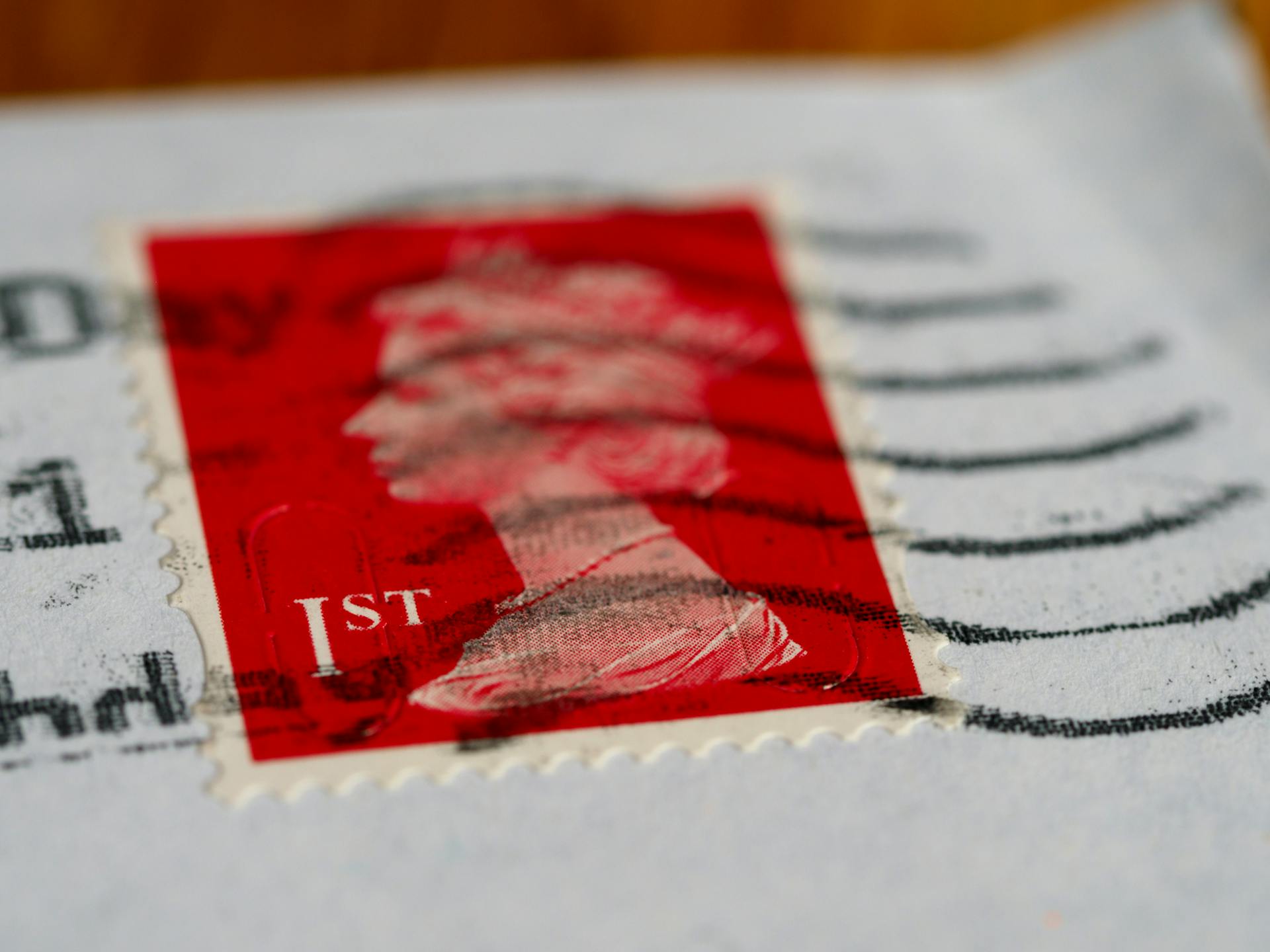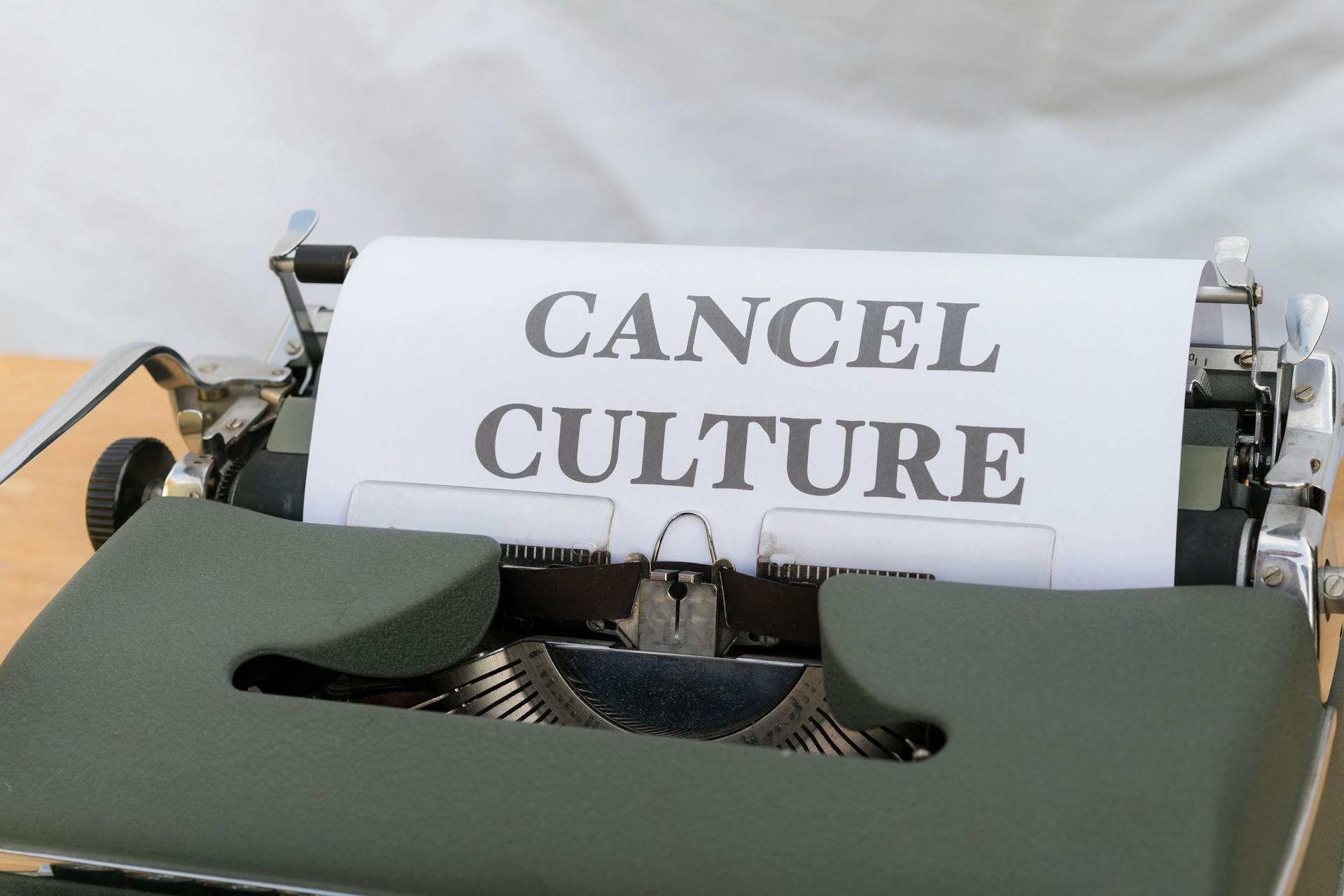
Receiving an insurance cancellation notice can be a stressful experience, but knowing what to expect can help you navigate the situation.
The notice will typically include the reason for cancellation, which could be non-payment of premiums, non-disclosure of information, or a change in policy terms.
You'll also need to review the notice to understand your options for reinstating the policy or finding alternative coverage.
The notice will usually specify the effective date of cancellation and any outstanding premiums or fees that need to be paid.
You might like: What Insurances Do I Need
Cancellation Reasons
If you receive a home insurance cancellation notice, it's essential to understand the reasons behind it. One reason is underwriting, which involves reviewing information about your policy within 60 to 90 days after it's been bound. If your insurer discovers something that goes against its underwriting requirements, it may cancel your policy.
You can also get a cancellation notice if you've had multiple claims, which is defined as anything other than a catastrophe claim. Most states have laws that protect you from having catastrophe claims used against you. Having bad credit, getting an aggressive pet, buying a new trampoline or pool, or having a vacant property for a specific period can also lead to cancellation.
Readers also liked: Written Notice of a Health Insurance Claim
Having a criminal record is another reason for cancellation. If your insurer changes its business practices, such as altering its underwriting criteria or dropping a type of coverage, you may receive a nonrenewal notice. This can also happen if your insurer decides to stop selling policies in your area.
Here are some specific reasons for cancellation in different states:
Your insurance company can also cancel your policy at renewal for any reason within 60 days. They can cancel your coverage in the middle of your policy term for nonpayment, fraud, or an increase in the risk originally accepted. If your property condition has declined, your insurer must give you time to make required repairs before canceling your policy.
What to Do After Cancellation
If you receive a home insurance cancellation notice, don't panic. You may still be able to keep your coverage in force by calling your current insurance company right away.
Your insurer may allow you to remedy the problem before the cancellation date, such as paying a missed premium or replacing a roof that no longer meets their underwriting criteria.
If your insurance company doesn't offer a solution, you'll need to shop around for a new policy. Different companies take on different risks, so you may still be able to find a policy even if you've been canceled for underwriting concerns.
If your policy is canceled, you won't be able to drive without insurance in nearly every state, so you'll need to apply for a new policy as soon as possible.
You can try to reinstate your canceled auto insurance by calling your current insurer. If your policy has only lapsed for a couple of days, they may be able to reinstate it.
If your homeowners coverage is dropped, you should first find out the reason for the insurance company's decision and see if there is anything you can do to have your policy reinstated.
Here are some steps to take if your homeowners insurance is canceled or nonrenewed:
- Find out the reason for the insurance company's decision and see if there is anything you can do to have your policy reinstated.
- File an appeal with your insurance company directly or issue a complaint with your state's insurance department to find out why your policy was canceled.
- Consider purchasing a FAIR Plan or surplus lines insurance if your coverage is canceled because your property is too high-risk or unique to be covered under a standard insurance policy.
Cancellation Process
The cancellation process can be complex, but understanding it can help you navigate any issues that may arise.
Your insurance company can cancel your policy at renewal for any reason for up to 60 days. They can also cancel your coverage in the middle of your policy term for specific reasons, such as nonpayment or fraud.
The company must mail a cancellation notice to you at your last known mailing address, so it's essential to keep your address up to date with your insurance agent or company. The notice must be mailed at least 10 days before the cancellation date for nonpayment of premium, and at least 30 days before the cancellation date for all other reasons.
If your policy is canceled due to an increase in risk, the company must give you time to make required repairs, not exceeding 90 days.
Suggestion: Trip Cancellation Insurance Covered Reasons
Can a Company Cancel Your Policy?
A cancellation notice from your home insurance company can be a stressful experience, but it's essential to understand the reasons behind it. You may be able to contest a cancellation or nonrenewal, depending on the situation.
In some states, insurance companies can cancel your policy without notice, but only in specific circumstances. For instance, in Alabama, insurers must provide 10 days of notice for cancellation due to nonpayment and 30 days notice for underwriting.
The main reasons for a home insurance cancellation are underwriting issues, nonpayment, or a substantial change in the risk. This can include filing multiple claims, having bad credit, or getting an aggressive pet.
Here are some specific reasons that may lead to a cancellation:
- File multiple claims.
- Have bad credit.
- Get an aggressive pet.
- Buy a new trampoline or pool.
- Your property is vacant for a specific period of time.
- Have a criminal record.
If you receive a cancellation notice, it's crucial to call your insurance company right away to see if there's anything that can be done to keep coverage in force. Sometimes, insurers allow you to remedy the problem before the cancellation date.
How Long is the Grace Period?
The grace period for late payments before your policy lapses varies by insurer and by state. It's typically anywhere between one and 30 days.
Knowing the exact length of your grace period is crucial to avoid policy lapse. You can find this information on your policy documents or by contacting your insurer directly.
It's very important to contact your insurer if you expect to make a late payment. This way, you can avoid any potential issues with your policy.
Broaden your view: Bond Insurer
Reinstating or Replacing Coverage
If your insurance coverage is dropped, you have options to reinstate or replace it. You can find out the reason for the cancellation and try to have your policy reinstated by appealing to your insurance company directly or filing a complaint with your state's insurance department.
Most states require insurance companies to explain why they're canceling or nonrenewing your policy, so you can use this information to your advantage. If your coverage was canceled incorrectly, you can request to have the policy reinstated. You may also be eligible for a FAIR Plan, a type of high-risk homeowners insurance for individuals who can't find coverage on the standard market.
If your insurance company doesn't offer a solution, you should shop around for a new policy. You may still be able to find a policy even if you've been canceled for underwriting concerns because different companies take on different risks. If you're having trouble finding affordable home insurance after a cancellation, consider checking around for providers offering coverage for high-risk homeowners in your area.
Here are some steps to take if your insurance is canceled:
- Call your current insurer to see if they can reinstate your policy
- Shop around for a new policy
- Consider purchasing surplus lines insurance if your property is too high-risk or unique to be covered under a standard insurance policy
- Update your insurance info with your state's department of motor vehicles (DMV) if you get a new policy
Affording a New Car
If you've let your car insurance lapse, you're likely facing a higher premium when you get a new policy. A 15-day lapse could result in an 8% price increase, while a 45-day lapse could result in a 24% jump.
This means you'll have to pay more for car insurance, and it's not just a one-time fee. You'll have to pay more every month for the next year or more, depending on the terms of your new policy.
If this caught your attention, see: New York Auto Insurance Cancellation Requirements
In some states, you'll even have to pay fees at the DMV for a brief lapse in insurance coverage. For example, in New York, drivers have to pay $8 per day for up to 30 days, with increased penalties thereafter.
The consequences of a lapsed insurance policy don't stop there. You might be required to get an SR-22, which can be expensive, or even have your car registration or driver's license suspended.
Here are some potential financial consequences of a lapsed insurance policy:
- Pay fees at the DMV: $8 per day in New York, with increased penalties thereafter
- SR-22 insurance: expensive and potentially required
- Suspended car registration or driver's license: nearly every state requires insurance to register a car
- Expensive car insurance rates: 8% to 24% higher premium for a 15- to 45-day lapse
- Repossessed loaned/leased car: most car lenders require full insurance coverage
- Lower credit score: owing money on car insurance can impact credit score
Reinstating Canceled Auto
Reinstating canceled auto insurance can be a bit of a challenge, but it's not impossible. First, call your current insurer to see if they can reinstate your policy if it's only been a couple of days since it lapsed.
You'll need to communicate with your insurance company to figure out an arrangement if you're unable to pay your car insurance bill. Ignoring or delaying the issue will only make your problems worse.
If your policy has been canceled due to nonpayment, you'll need to apply for a new policy. Start by calling your current insurance company to see if they can reinstate your policy or help you find a new one.
You'll likely face financial consequences even after you've reinstated your insurance, including higher rates, fees at the DMV, suspended car registration or driver's license, and more. A 15-day lapse could result in an 8% increase in your rates, while a 45-day lapse could result in a 24% jump.
Here are some potential consequences of letting your car insurance lapse:
- Pay fees at the DMV: Some states will charge you for even a brief lapse in insurance coverage.
- Suspended car registration or driver's license: Nearly every state requires drivers to insure their cars in order to register them.
- SR-22 insurance: You might be required to get an SR-22 if you're caught driving while uninsured, especially if you cause an accident.
- Expensive car insurance rates: Insurance companies like to see that drivers can reliably pay their bills on time every month.
- Repossessed loaned/leased car: Most car lenders require you to have full insurance coverage on the vehicle as long as the vehicle is financed.
- Lower credit score: If you owe money on your car insurance and your insurer passes the debt to a collection agency, it will likely impact your credit score.
Don't wait until it's too late to reinstate your canceled auto insurance. Call your current insurer or start shopping around for a new policy to get back on the road with the coverage you need.
Can I Still Get After Being Dropped?
You might be wondering if you can still get home insurance after being dropped from your insurer. Unfortunately, it may be harder to find coverage, especially if you have numerous claims or your home is in poor condition.
Broaden your view: What Is Hazard Insurance on a House
Some insurers may view you as a high-risk homeowner, making it challenging to find a new policy. However, it's not impossible. According to the Insurance Information Institute (Triple-I), you may not necessarily be charged a higher premium when switching to another carrier because of a nonrenewal, depending on the circumstances that led to your insurer's decision.
If you're having trouble finding affordable home insurance after a cancellation, check around for providers offering coverage for high-risk homeowners in your area. You can also try to address any issues that led to the cancellation, such as fixing up an older roof.
In some cases, you may be eligible for a FAIR Plan, a type of high-risk homeowners insurance for individuals who are unable to find coverage on the standard market. There are 33 states (and Washington, D.C.) that offer some type of FAIR Plan for high-risk homeowners.
Here's a brief rundown of the reasons why an insurer might cancel your policy and what you can do about it:
Keep in mind that each situation is unique, and the best course of action will depend on the specific circumstances surrounding your policy cancellation.
Sources
- https://www.bankrate.com/insurance/homeowners-insurance/homeowners-insurance-canceled/
- https://www.kin.com/blog/cancelled-homeowners-insurance/
- https://www.policygenius.com/homeowners-insurance/home-insurance-cancellation-laws-by-state/
- https://idoi.illinois.gov/consumers/consumerinsurance/homeownerrenter/if-your-homeowners-insurance-policy-is-canceled.html
- https://www.valuepenguin.com/car-insurance-canceled-nonpayment
Featured Images: pexels.com


